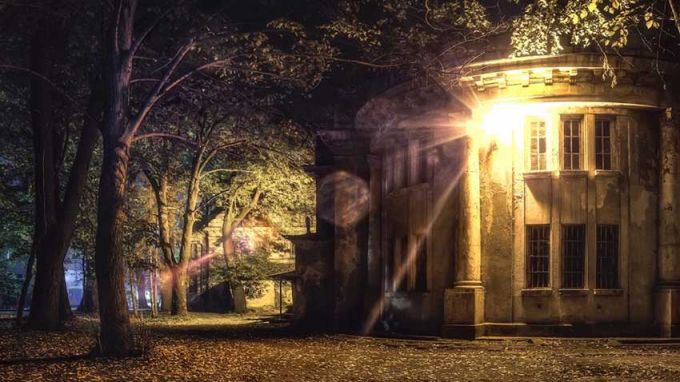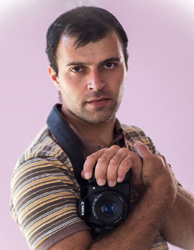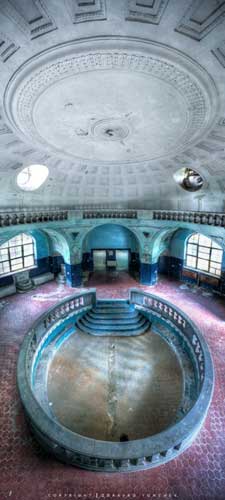 6
6
Sofia is one of the world capitals with highest number of mineral springs. The city emerged and developed due to its healing mineral waters. The first written evidence of these springs dates back to the 4th century BC. Sofia (Once Ulpia Serdica) flourished during the Roman presence around the 2nd century AD, when the city turned into a center of political and cultural life. The mineral baths in Sofia were used widely during the Ottoman Period when the public baths (the so-called Hamam) became popular.
 Inspired by the unique construction, young Bulgarian photographer Zdravko Yonchev took photos of the pubic bath in Ovcha Kupel district in the autumn of 2013, in order to show it to as many people as possible and make them imagine the bath’s past and future. The photos spread quickly in the social networks and the media. Later, he took photos of the public baths in Gorna Banya and Bankya districts. His photos gained quick popularity, initiated various discussions and filled people with hope that these public baths would be renovated and start functioning again one day. All who wish to see these photos can do so at a special open-air exhibition in front of Ivan Vazov National Theatre in Sofia until September 10, 2014. It presents the architectural beauty of the old mineral baths in Sofia.
Inspired by the unique construction, young Bulgarian photographer Zdravko Yonchev took photos of the pubic bath in Ovcha Kupel district in the autumn of 2013, in order to show it to as many people as possible and make them imagine the bath’s past and future. The photos spread quickly in the social networks and the media. Later, he took photos of the public baths in Gorna Banya and Bankya districts. His photos gained quick popularity, initiated various discussions and filled people with hope that these public baths would be renovated and start functioning again one day. All who wish to see these photos can do so at a special open-air exhibition in front of Ivan Vazov National Theatre in Sofia until September 10, 2014. It presents the architectural beauty of the old mineral baths in Sofia.
“In the beginning I took photos of the public bath in Ovcha Kupel district. There is a large and very interesting park right next to the bath”, Zdravko Yonchev explains. “The park and the building of the public bath were opened at the same time. A huge biodiversity of over 100 plant species can be seen there. When I was walking my dog in the park, I discovered the architectural value of this building, although it was crumbling down. It attracted my curiosity and when I decided to make a living with photography, I took photos of everything that inspired me earlier.”
Zdravko Yonchev’ss photos of Ovcha Kupel bath became the most impressive and popular photos of this type in Bulgaria.
 “These photos made me launch the current exhibition”, the Bulgarian photographer explains. “The people who commented on my photos offered me to take pictures of other places as well - the baths in Knyazevo district, Varshec (in Northwestern Bulgaria), as well as the ones in Gorna Banya and Bankya district. People make suggestions and I try to fulfill their will. We have incredible cultural heritage and many buildings with unique architectural design. I will continue to show these places through my lenses.”
“These photos made me launch the current exhibition”, the Bulgarian photographer explains. “The people who commented on my photos offered me to take pictures of other places as well - the baths in Knyazevo district, Varshec (in Northwestern Bulgaria), as well as the ones in Gorna Banya and Bankya district. People make suggestions and I try to fulfill their will. We have incredible cultural heritage and many buildings with unique architectural design. I will continue to show these places through my lenses.”
Zdravko also tries to find in these buildings the messages of the past.
“These buildings were made by a society, which in my view has disappeared to a great extent. What makes biggest impression is the fact that these buildings were constructed by everyone. The citizens took active part in the construction of the baths together with the state authorities. Many renowned Bulgarians also helped through donations. It is obvious that the Bulgarian society was united at that time. This is something we lack the most nowadays. In fact, the current state of the old public baths represents the present Bulgarian society. If it changes for the better and becomes more united, these buildings will exist in the future.”
The public baths were centers of social contacts and debates over the centuries. Young photographer Zdravko Yonchev also confirms this fact and makes an interesting comparison with the Internet:
“The public baths were a social phenomenon at that time, just like Facebook and the other social networks nowadays. They united all people who lived in the town. People of different social status gathered there and held various contacts and sometimes took important decisions”
All 37 unique photos, shot and processed with special equipment, are backed with historical information and take the visitor into the atmosphere of the crumbling, yet wonderful healing baths in Sofia. The event is held in support of Sofia’s candidature to become European Capital of Culture in 2019.
“I really want to see Sofia become European Capital of Culture, because the authorities will pay more attention to these old buildings”, says Zdravko. “Even if Sofia’s candidature fails, I would like to see the Bulgarian society become more sensitive to the destiny of our cultural monuments. There are many cultural and architectural monuments in Sofia and it is already a Capital of Culture, even without an official recognition.”
Zdravko Yonchev calls on all people to be more open to the beauty of the city. “When they walk along the streets of Sofia, they should look up, in order to realize that they are surrounded by so many beautiful buildings. These buildings embody our past and identity. May our identity live forever!”
English version: Kostadin Atanasov
Photos: courtesy to Zdravko YonchevAustralian author Joanna Murray-Smith is coming to Sofia at the invitation of the Nikolay Binev Youth Theater. She is visiting Bulgaria for the first time between November 5 and 9, 2025 for a specially organized "Panorama of Joanna Murray-Smith", which..
On the eve of one of the brightest Bulgarian holidays – the Day of the National Awakeners, the Bulgarian Cultural Institute in London welcomed the guests of the Bulgarian National Radio in a meeting-conversation with Bulgarian poet Mirela Ivanova,..
On the eve of one of the brightest Bulgarian holidays - the Day of the National Awakeners of Bulgaria, the Bulgarian Cultural Institute in London is inviting Bulgarians living in the UK to a meeting-conversation with three contemporary artists -..
To celebrate the 120th anniversary of the birth of Bulgarian intellectual Dimitar Nenov, a screening of the music documentary Dimitar Nenov and the..
A special exhibition dedicated to the 140th anniversary of the Unification of the Principality of Bulgaria and Eastern Rumelia has been presented in the..
To mark the 65th anniversary of the Cuban animation studio Instituto Cubano del Arte e Industria Cinematográficos (ICAIC), Bulgarian director Andrey..

+359 2 9336 661
